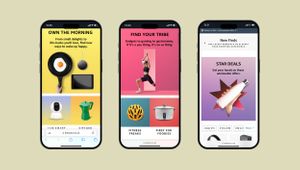
It’s Time to Simplify the Chaos

I’ve got some bad news. If you think that the world of e-commerce is a noisy, complex, and chaotic place in 2024, it’s only going to get worse in the years ahead. According to Statista, e-commerce accounted for 19% of all global retail sales in 2023, and is expected to climb to almost 23% by 2027.
That statistic might surprise you - it certainly surprised me. Existing on the internet today means getting distracted and bombarded with endless content, all peppered with increasingly ‘relevant’ ads. And there are no sacred spaces - Google ads target me when I search, brands have their own apps, they’re popping up in my social feeds, and e-commerce websites seem to be proliferating by the day. It feels incredibly noisy and crowded, and yet four-fifths of sales are still happening offline.
With so many businesses yet to dip their toes into e-commerce (with an emphasis on yet), that sense of overwhelm seems likely to increase.
But now, the good news. All of this noise and content means that, over time, simplicity is becoming more and more of a differentiator. As a result, any business which is serious about its e-commerce offering needs to ask itself a few questions. How can we simplify? What are the barriers getting in the way of our customers’ experience? And how can we remove them?
Our work with Amazon aimed to answer all three of these questions. We wanted to condense the e-commerce chaos in a way that made sense for Amazon customers, fully leaning into simplicity whilst still showcasing a curated range with clarity. It was no easy task, but colour, categorisation and a small element of surprise - designed to keep the spark of interest alive - kept the digital warehouse feeling fresh, alive and, crucially, easy-to-browse.
On one hand, not every business can be Amazon. That’s fair. But on the other hand, the lessons and the template of that work can be applied broadly. Online storefronts are at their most effective when they are designed around consumer experience. We know that when e-commerce platforms make life easier, that leads directly to both better conversion rates and better customer satisfaction. At a time when your experience is your brand, these are the principles to follow.
And there’s something more psychological at play here, too. Specifically, when an experience feels more intuitive, thoughtful - and frankly more human - it tends to have a positive impact on trust.
It’s more straightforward to do that in bricks and mortar when you have the benefit of person to person interaction. For example, recently I was in a Whittard of Chelsea shop and the whole experience felt human and easy: from chatting to the staff (who have an incredible knowledge about the products and the growers), to the opportunity to taste the teas, to the check out process, the whole experience felt easy. It’s not so much that I actively noticed a reduction in friction, more that I was left with a positive feeling about the brand, and I believe (trust) that I’ll have an equally positive experience the next time I visit, either in a store or online.
It can be harder to create that experience in the digital world. Another interesting statistic that struck me recently is that a small majority of people still describe online shopping as ‘risky’ compared to the real-world alternative. So anything that you can do to foster trust, whether directly or indirectly, can pay back in dividends.
That’s a philosophy which e-commerce platforms should integrate into their offerings. The customer shouldn’t be actively thinking about how smooth the experience is - it should be smooth enough that they’re not thinking about anything besides the products.
It’s noisy online, and it’s about to get even louder over the next few years. But as the chaos builds, there’s an opportunity to leverage simplicity to drive growth and trust at the same time.















